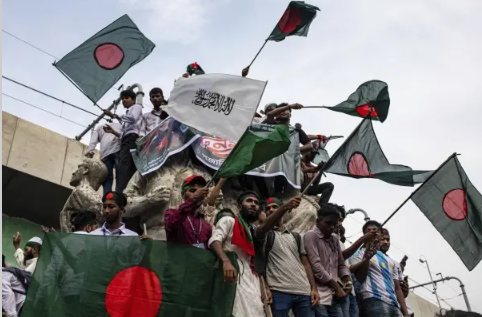
One of the few rays of light in an otherwise dismal 2024 was the ouster of Prime Minister Sheikh Hasina in Bangladesh in August. The overturning of her corrupt and brutal rule – sustained through three consecutive unfair elections – gave the country an opportunity for systematic reform: away from autocracy and towards democracy.
This opportunity for change has come with a heavy price, of course. Nearly 1,000 Bangladeshis lost their lives fighting for democracy, mostly at the hands of the country’s security forces.
The best way to honor their sacrifice is to firmly embed democratic reforms, including respect for the rule of law and human rights. There also needs to be a push for accountability for past crimes by security forces, like disappearances, extrajudicial killings, arbitrary arrests, surveillance, and torture.
The interim government, under Nobel Peace Prize winner Muhammad Yunus, has made important commitments to implementing reforms and holding free and fair elections. They’ve dropped many politically motivated cases filed by the previous administration. The extrajudicial killings and enforced disappearances have stopped. People say they can speak freely.
In February, a commission headed by Yunus is set to begin implementing reforms to the electoral system, justice system, public administration, the police, the anti-corruption office, and the constitution.
In short, things seem to be moving quickly and determinedly in Bangladesh.
However, not everything is moving in the right direction. Human Rights Watch has found that some same patterns of security force abuses have emerged since Hasina’s ouster.
Only today, the targets are former supporters of Hasina’s Awami League, including journalists. The police are again arbitrarily detaining people and filing mass criminal complaints against unnamed people, which allows the police to intimidate and threaten virtually anyone with arrest.
In the first two months since the interim government took office, over 1,000 police cases were filed against tens of thousands of people, mainly Awami League members, accusing them of murder, corruption, or other crimes.
Of course, there needs to be justice for past crimes. Those with command responsibility for abuses under the previous government should be held to account.
But mass complaints without adequate evidence only undermine justice, and risk opening a pathway back to the abusive past.
There are a lot of folks outside Bangladesh who are rooting for this democratic transition to work and can bring some expertise to the table. The government should seek technical assistance, monitoring, and reporting by the Office of the High Commissioner for Human Rights and other UN rights experts.
The current leadership is trying to undo fifteen years of increasingly entrenched autocracy. It’s a monumental task. Enlisting UN rights experts will improve their chances of success.






